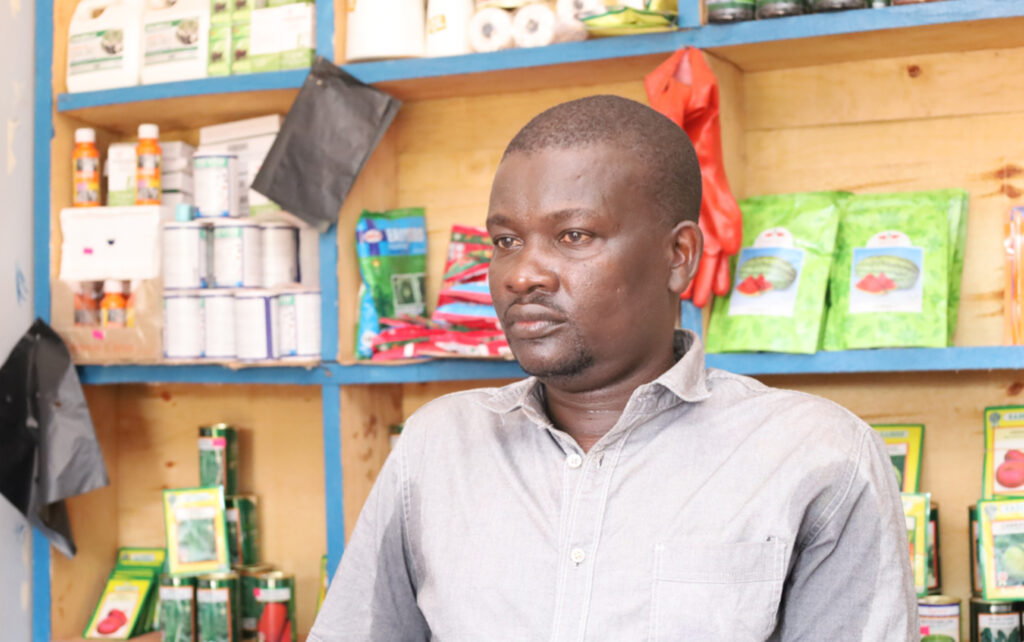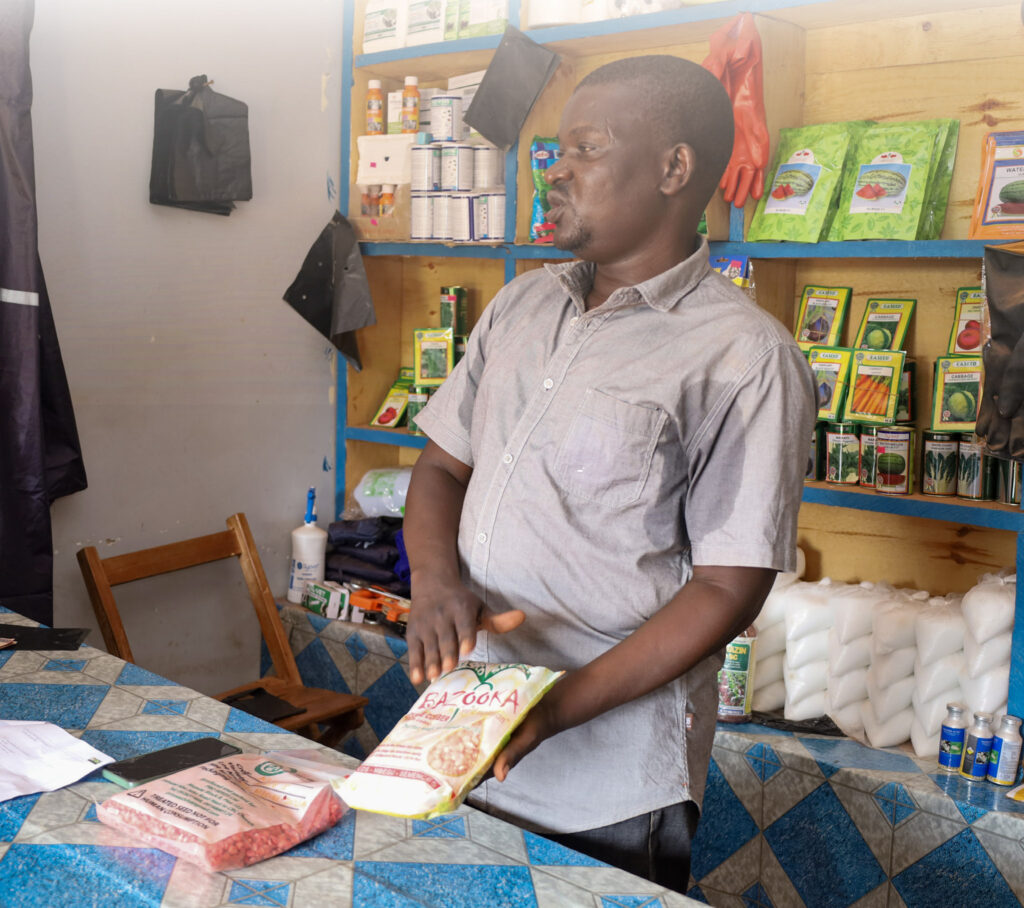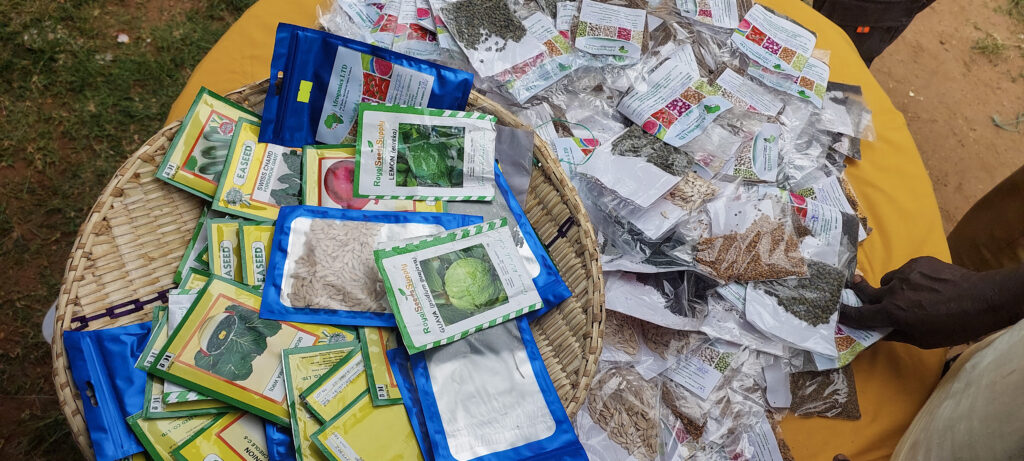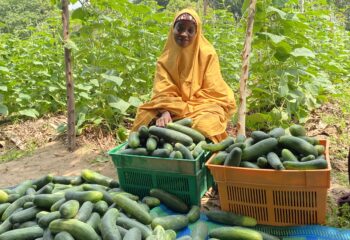
In South Sudan, where resilience and hope fuel the aspirations of many, the Accelerating Agriculture and Agribusiness in South Sudan for Enhanced Economic Development (A3-SEED) project is making a positive difference in the seed value chain.
A3-SEED is developing a market-oriented seed sector by establishing a commercially viable and sustainable seed system. Funded by the Embassy of the Kingdom of the Netherlands in South Sudan and implemented by the International Fertilizer Development Center (IFDC) together with KIT, the project ensures that farmers have continued access to high-quality seeds and expert agricultural advice.
A3-SEED works with seed companies, seed outgrowers, agro-dealers, and village agents to create a complete seed value chain. By doing so, A3-SEED helps create businesses and jobs. The project especially emphasizes the engagement of smallholder farmers, returnee farmers, and women and youth in quality seed production. One promising youth to emerge from this project is Simon Mbata.
Simon is from Yambio County in Western Equatoria State, and at one time, he was a struggling businessperson. Simon diverted $3,000 from his other business ventures to embark on a new journey into agribusiness early this year. His decision was a calculated risk bolstered by extensive training on seed production and seed marketing and grants provided through the A3-SEED project.
“Approximately 70 locally established agents in the counties can now access quality seeds from my shop.”
Simon Mbata

Throughout his training, Simon learned to respond to the capacity gaps of the agro-dealers and strengthen his business management skills. As a result, Simon gained customer care skills and was equipped with knowledge on record keeping and identifying customer needs.
Simon set up his agro-input shop adjacent to the Ngun Kata Medical Centre in Yambio County. To close the information gap on the availability of seeds in Yambio County, IFDC designed radio messages that play regularly, letting farmers know where quality seeds can be found and mentioning the location of Simon’s agro-input shop. This has created a demand for his products.
Today, Simon counts on a staggering $12,000 in growth from his enterprise, a successful result of the support system established by A3-SEED. Now an authorized agro-dealer, he has expanded his operations across several counties in Western Equatoria State, ensuring that quality seeds reach the farthest corners of the region. “Approximately 70 locally established agents in the counties can now access quality seeds from my shop,” Simon shares.

However, the journey has not been without challenges. “Inadequate resources to procure the required volumes and high transport costs impede the progress of my business,” he observed. With IFDC’s support, Simon is meeting this challenge, now beginning to contract farmers in Nzara and Maridi Counties to produce seeds locally for distribution to smallholder farmers through his outlet.
Despite the unpredictable ecological seasons in South Sudan, the direct support provided to agro-enterprises like Simon’s has been instrumental in ensuring access to quality seeds and other essential inputs for farmers.
Simon attributes his success to the training provided by A3-SEED to offer better services to smallholder farmers, in terms of variety and quality. This support has been a key motivator for farmers and agro-dealers to embrace agribusiness as a viable and sustainable source of livelihood.
As he described his thriving agribusiness, Simon expressed pride and unyielding hope for the future. As a successful agro-dealer, he inspires others to engage in innovative agricultural development.
Simon’s story and successful business demonstrate the transformative effect of the A3-SEED initiative. By transitioning humanitarian support into a more commercially sustainable seed system, the A3-SEED initiative fosters a better, more adaptive agriculture sector for like-minded youth such as Simon across South Sudan.
A3-SEED is led by IFDC and implemented together with the KIT Royal Tropical Institute. The project provides market-oriented interventions to move from humanitarian support to a commercial, sustainable, and adaptive agriculture sector. A3-SEED seeks to reach more than 100,000 farming households that will see a doubling of income from marketable surpluses of targeted commodities, thereby improving livelihoods.





